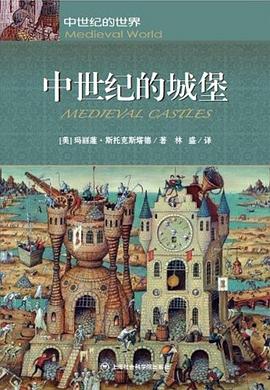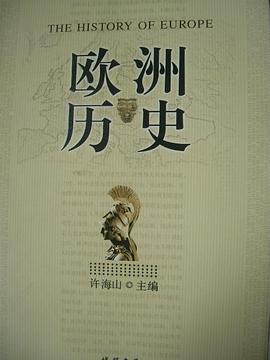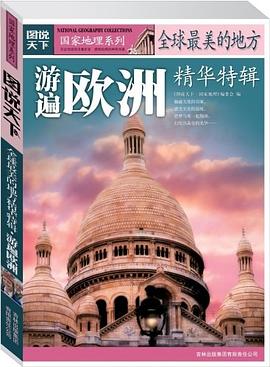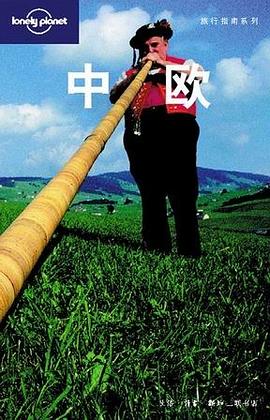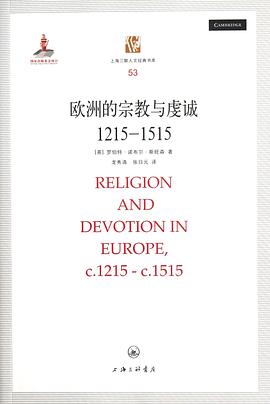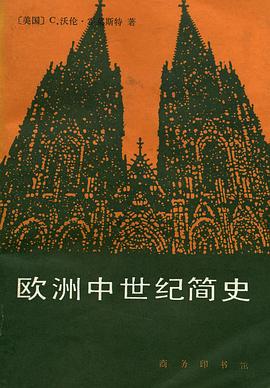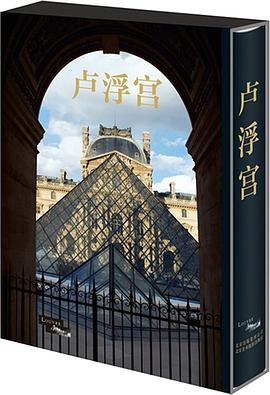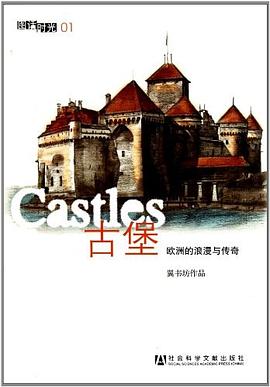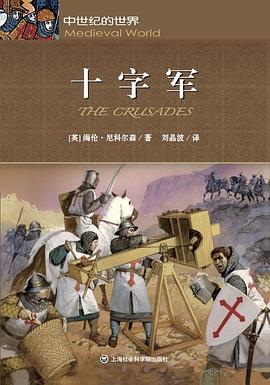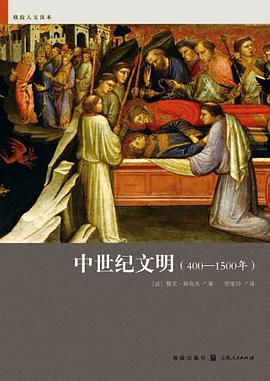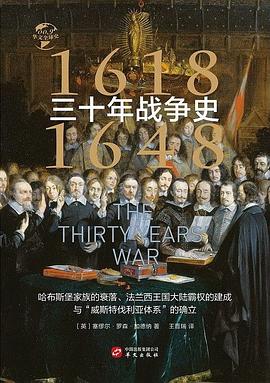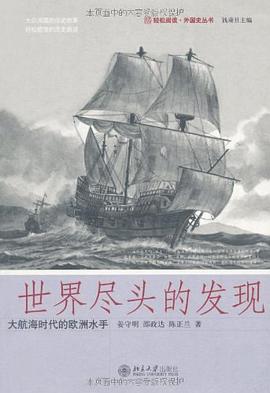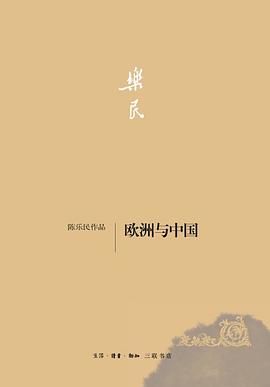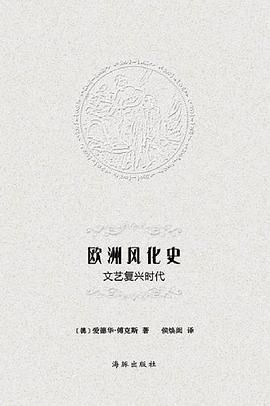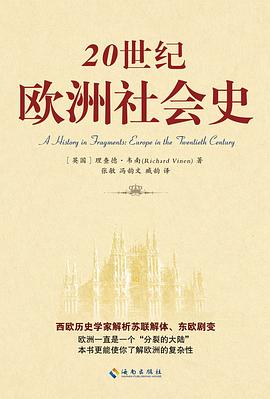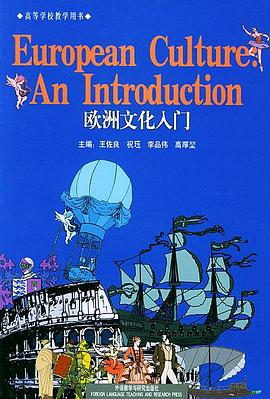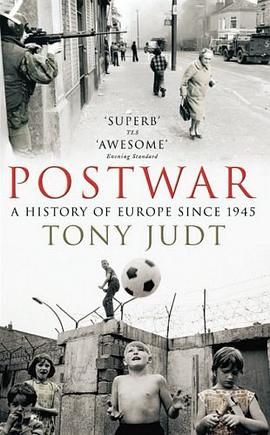
具體描述
Almost a decade in the making, this much-anticipated grand history of postwar Europe from one of the world's most esteemed historians and intellectuals is a singular achievement. Postwar is the first modern history that covers all of Europe, both east and west, drawing on research in six languages to sweep readers through thirty-four nations and sixty years of political and cultural change-all in one integrated, enthralling narrative. Both intellectually ambitious and compelling to read, thrilling in its scope and delightful in its small details, Postwar is a rare joy.
Finalist for the Pulitzer Prize
Winner of the Council on Foreign Relations Arthur Ross Book Award
One of the New York Times' Ten Best Books of the Year
作者簡介
Born in 1948, Tony Judt was raised in the East End of London by a mother whose parents had immigrated from Russia and a Belgian father who descended from a line of Lithuanian rabbis. Judt was educated at Emanuel School, before receiving a BA (1969) and PhD (1972) in history from the University of Cambridge.
Like many other Jewish parents living in postwar Europe, his mother and father were secular, but they sent him to Hebrew school and steeped him in the Yiddish culture of his grandparents, which Judt says he still thinks of wistfully. Urged on by his parents, Judt enthusiastically waded into the world of Israeli politics at age 15. He helped promote the migration of British Jews to Israel. In 1966, having won an exhibition to King's College Cambridge, he took a gap year and went to work on kibbutz Machanaim. When Nasser expelled UN troops from Sinai in 1967, and Israel mobilized for war, like many European Jews, he volunteered to replace kibbutz members who had been called up. During and in the aftermath of the Six-Day War, he worked as a driver and translator for the Israel Defense Forces.
But during the aftermath of the war, Judt's belief in the Zionist enterprise began to unravel. "I went with this idealistic fantasy of creating a socialist, communitarian country through work," Judt has said. The problem, he began to believe, was that this view was "remarkably unconscious of the people who had been kicked out of the country and were suffering in refugee camps to make this fantasy possible."
Career: King's College, Cambridge, England, fellow, 1972-78; University of California at Berkeley, assistant professor, 1978-80; St. Anne's College, Oxford University, Oxford, England, fellow, 1980-87; New York University, New York, NY, professor of history, 1987--, director of Remarque Institute, 1995--.
Awards: American Council of Learned Societies, fellow, 1980; British Academy Award for Research, 1984; Nuffield Foundation fellow, 1986; Guggenheim fellow, 1989; Pulitzer Prize in general nonfiction finalist, 2006, for Postwar: A History of Europe since 1945.
目錄資訊
讀後感
在上世纪50年代中期因白内障导致双目接近失明,从外语教师的职务上退休,命令我每天给他念报纸,专读国际新闻。因此,什么“西德复活军国主义”、“美、英、法、苏四大国首脑最高级会晤”等消息于我十分熟稔,足以在同龄小伙伴中掌握话语权。“文化大革命”时“天下大乱”,对...
評分以这样的翻译质量, 居然能够以精装再版, 简直误人误国. 居然在豆瓣还有8分以上, 也不知道请了多少水军来填坑. 转摘一段书评, 虽然是针对2012年第一版, 但是对这一版仍然有效. " 这些年粗制滥造的翻译书很多,但像《战后欧洲史》这样过分的还真不多见。93万字的两册书差错...
評分p4 第二次世界大战后的欧洲完全呈现一片悲惨荒芜景象。当时的新闻照片和记录影片显示了大量可怜而且无助的平民在轰炸后破碎的城市和荒凉的乡间跋涉。孤儿们愁苦地流浪,衣衫褴褛的妇女们成群结队地在瓦砾中拾荒。被驱逐出境的人剃光脑袋,集中营囚徒穿着条纹的衣裤,饥病交迫,...
評分刊于东方早报-上海书评 两年前读托尼•朱特的《责任的重负:布鲁姆、加缪、阿隆和法国的20世纪》(章乐天译,新星出版社,2007年9月),仿佛是飞翔在历史的波涛之上俯瞰作为个体的知识分子与社会和思潮的关系,云飞浪卷、风急潮涌,实在看得有点惊心动魄。如果不是借助作者的...
評分刊于东方早报-上海书评 两年前读托尼•朱特的《责任的重负:布鲁姆、加缪、阿隆和法国的20世纪》(章乐天译,新星出版社,2007年9月),仿佛是飞翔在历史的波涛之上俯瞰作为个体的知识分子与社会和思潮的关系,云飞浪卷、风急潮涌,实在看得有点惊心动魄。如果不是借助作者的...
用戶評價
神作!
评分購買鏈接:https://item.taobao.com/item.htm?spm=0.7095261.0.0.77cf1debTtP9E8&id=566280142285
评分"Every epoch is a sphinx that plunges into the abyss as soon as its riddle has been solved."
评分托尼寶典
评分神作!
相關圖書
本站所有內容均為互聯網搜索引擎提供的公開搜索信息,本站不存儲任何數據與內容,任何內容與數據均與本站無關,如有需要請聯繫相關搜索引擎包括但不限於百度,google,bing,sogou 等
© 2026 qciss.net All Rights Reserved. 小哈圖書下載中心 版权所有


